|
Books Should Be Free Loyal Books Free Public Domain Audiobooks & eBook Downloads |
|
|
Books Should Be Free Loyal Books Free Public Domain Audiobooks & eBook Downloads |
|
History Books |
|---|
|
Book type:
Sort by:
View by:
|
By: Henry Charles Lea (1825-1909) | |
|---|---|
 History of the Inquisition of Spain, Vol. 3
History of the Inquisition of Spain, Vol. 3
The 3rd volume of Lea's monumental work on the Spanish Inquisition. This volume covers torture practices; the trial process; punishments; Jews, Moriscos, and Protestants; and censorship. - Summary by Sienna | |
 History of the Inquisition of Spain, Vol. 4
History of the Inquisition of Spain, Vol. 4
The fourth and final volume of Lea's monumental work on the Spanish Inquisition. This volume discusses how the Inquisition dealt with mysticism, solicitation of illicit relationships, bigamy, theological propositions, witchcraft and sorcery, political activity, and almost every other facet of daily life. It concludes with an overarching history of the Inquisition and retrospective. | |
By: Henry Cowling (1874-1945) | |
|---|---|
 From Lower Deck to Pulpit
From Lower Deck to Pulpit
| |
By: Henry Craik (1846-1927) | |
|---|---|
 Life of Edward Earl of Clarendon — Volume 02
Life of Edward Earl of Clarendon — Volume 02
| |
By: Henry Cruse Murphy (1810-1882) | |
|---|---|
 The Voyage of Verrazzano A Chapter in the Early History of Maritime Discovery in America
The Voyage of Verrazzano A Chapter in the Early History of Maritime Discovery in America
| |
By: Henry David Thoreau (1817-1862) | |
|---|---|
 Walden
Walden
Two years, two months and two days! This is what forms the time line of one man's quest for the simple life and a unique social experiment in complete self reliance and independence. Henry David Thoreau published Walden in 1884. Originally drafted as a series of essays describing a most significant episode in his life, it was finally released in book form with each essay taking on the form of a separate chapter. Thoreau's parents were in financial straights, but rich intellectually and culturally... | |
 A Week on the Concord and Merrimack Rivers
A Week on the Concord and Merrimack Rivers
| |
 A Plea for Captain John Brown
A Plea for Captain John Brown
| |
 Service
Service
An essay in three parts written in July 1840. "Human life is his topic, and he views it with an Oriental scope of thought, in which distinctions of Time and Space are lost in the wide prospect of Eternity and Immortality." - Summary by Fritz | |
By: Henry E. (Henry Edwin) Baker (1859-) | |
|---|---|
 The Colored Inventor A Record of Fifty Years
The Colored Inventor A Record of Fifty Years
| |
By: Henry Esmond Christman (1906-1980) | |
|---|---|
 Tin Horns and Calico
Tin Horns and Calico
In the early 19th century, in the Hudson Valley of New York State, hundreds of square miles of land were still the feudal domains of large landowners known as patroons. Such families as the Van Rensselaers, Livingstons, and Schuylers owned the farms and towns in which hundreds of thousands of ordinary people lived and worked. Even the capitol city of New York State, Albany, was encompassed in the private fiefdom of a patroon. On July 4, 1839, in the mountain town of Berne, New York, a mass meeting... | |
By: Henry F. (Henry Francis) Keenan (1850-) | |
|---|---|
 The Iron Game A Tale of the War
The Iron Game A Tale of the War
| |
By: Henry Festing Jones (1851-1928) | |
|---|---|
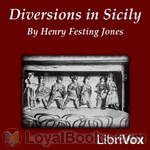 Diversions in Sicily
Diversions in Sicily
Samuel Butler's biographer dedicates his urbane account of the culture and entertainments of rural Sicily to the unborn son of his guide to them. | |
 Castellinaria and Other Sicilian Diversions
Castellinaria and Other Sicilian Diversions
| |
By: Henry Fisk Carlton | |
|---|---|
 Washington Crossing the Delaware
Washington Crossing the Delaware
| |
 The Story of Nathan Hale
The Story of Nathan Hale
| |
By: Henry G. Nicholls (1825-1867) | |
|---|---|
 The Forest of Dean An Historical and Descriptive Account
The Forest of Dean An Historical and Descriptive Account
| |
 Iron Making in the Olden Times as instanced in the Ancient Mines, Forges, and Furnaces of The Forest of Dean
Iron Making in the Olden Times as instanced in the Ancient Mines, Forges, and Furnaces of The Forest of Dean
| |
By: Henry Goudemetz (1749-1826?) | |
|---|---|
 Historical Epochs of the French Revolution With The Judgment And Execution Of Louis XVI.
Historical Epochs of the French Revolution With The Judgment And Execution Of Louis XVI.
| |
By: Henry H. S. Pearse (1844-1905) | |
|---|---|
 Four Months Besieged The Story of Ladysmith
Four Months Besieged The Story of Ladysmith
| |
By: Henry Handel Richardson (1870-1946) | |
|---|---|
 Australia Felix
Australia Felix
The story of Richard Mahony, a doctor trained in Edinburgh who comes to Ballarat in the gold rush of the 1850s. At first he runs a shop but later he marries and returns to medical practice. His story is interwoven with that of his wife’s brothers and sister. Even after his medical practice becomes successful he is still unhappy living in the colony and decides to return home to Britain. Richard is a restless irritable man whose character is said to be based on the author’s own father. This book is the first of the trilogy ‘The Fortunes of Richard Mahony’, but stands well on its own... | |
By: Henry Highland Garnet (1815-1882) | |
|---|---|
 Walker's Appeal, with a Brief Sketch of His Life And Also Garnet's Address to the Slaves of the United States of America
Walker's Appeal, with a Brief Sketch of His Life And Also Garnet's Address to the Slaves of the United States of America
| |
By: Henry Inman (1837-1899) | |
|---|---|
 The old Santa Fe trail The Story of a Great Highway
The old Santa Fe trail The Story of a Great Highway
| |
 Tales Of The Trail; Short Stories Of Western Life
Tales Of The Trail; Short Stories Of Western Life
This 1898 collection of thirteen previously published articles exhibits the acute perception of one of the most popular writers of the late 19th-early 20th centuries. “These "Tales of the Trail" are based upon actual facts which came under the personal observation of the author… and will form another interesting series of stories of that era of great adventures, when the country west of the Missouri was unknown except to the trappers, hunters, and army officers.” Henry Inman was an American soldier, frontiersman, and author... | |
By: Henry James (1843-1916) | |
|---|---|
 A Little Tour of France
A Little Tour of France
| |
 Outcry
Outcry
The story concerns the contemplated sale of a famous painting by a proud but relatively cash-strapped British aristocrat to a wealthy American art collector who is bent on buying up treasured masterpieces from the Old World, and the patriotic outcry after the public gets wind of his intent. The matter is further complicated by the strong resistance put up by his younger daughter and her blunt-spoken, art critic friend against the sale. - Summary by shih-ping | |
By: Henry Jenner (1848-1934) | |
|---|---|
 A Handbook of the Cornish Language chiefly in its latest stages with some account of its history and literature
A Handbook of the Cornish Language chiefly in its latest stages with some account of its history and literature
| |
By: Henry Jones Ford (1851-1925) | |
|---|---|
 The Cleveland Era; a chronicle of the new order in politics
The Cleveland Era; a chronicle of the new order in politics
| |
By: Henry Ketcham | |
|---|---|
 The Life of Abraham Lincoln
The Life of Abraham Lincoln
| |
By: Henry L. Mencken (1880-1956) | |
|---|---|
 A Book of Prefaces
A Book of Prefaces
| |
By: Henry L. Williams | |
|---|---|
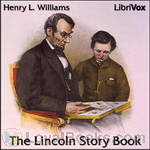 The Lincoln Story Book
The Lincoln Story Book
The Abraham Lincoln Statue at Chicago is accepted as the typical Westerner of the forum, the rostrum, and the tribune, as he stood to be inaugurated under the war-cloud in 1861. But there is another Lincoln as dear to the common people–the Lincoln of happy quotations, the speaker of household words. Instead of the erect, impressive, penetrative platform orator we see a long, gaunt figure, divided between two chairs for comfort, the head bent forward, smiling broadly, the lips curved in laughter, the deep eyes irradiating their caves of wisdom; the story-telling Lincoln, enjoying the enjoyment he gave to others. (from the preface of the book) | |
By: Henry Labouchere (1831-1912) | |
|---|---|
 Diary of the Besieged Resident in Paris
Diary of the Besieged Resident in Paris
| |
By: Henry Lawson (1867-1922) | |
|---|---|
 Short Stories in Prose and Verse
Short Stories in Prose and Verse
Short Stories in Prose and Verse” is Henry Lawson’s first published book ; his first published poem appeared in 1887. The volume is a snapshot of his writing style up to the start of his career. His first published poem appeared at age 20, his first published book at age 27. This volume is a good sample of Henry Lawson’s poetry and prose and makes a good stepping-stone towards the enjoyment of his later works. Summary by Chris Greaves | |
 Scots Of The Riverina
Scots Of The Riverina
This poem tells the story of a boy in Australia who leaves the farm at harvest time. "and to run from home was a crime." The story is set in the Riverina, New South Wales in the town of Gundagai. | |
By: Henry M. Field (1822-1907) | |
|---|---|
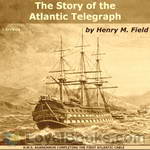 The Story of the Atlantic Telegraph
The Story of the Atlantic Telegraph
Cyrus W. Field had a dream: to link the Old World of Britain and Europe to that of the New World of North America by a telegraph cable stretching across the great Atlantic Ocean. It took him thirteen years, a lot of money, and many men and ships and cable to make it happen. He wanted to bring the world together and make it a smaller place; to forge alliances and achieve peace. This is his story. (Introduction by Alex C. Telander) | |
By: Henry MacMahon | |
|---|---|
 Orphans of the Storm
Orphans of the Storm
| |
By: Henry Mann (1848-1915) | |
|---|---|
 The Land We Live In The Story of Our Country
The Land We Live In The Story of Our Country
| |
By: Henry Martyn Baird (1832-1906) | |
|---|---|
 History of the Rise of the Huguenots Vol. 1
History of the Rise of the Huguenots Vol. 1
| |
By: Henry Martyn Cist (1839-1902) | |
|---|---|
 The Army of the Cumberland
The Army of the Cumberland
| |
By: Henry Mayhew (1812-1887) | |
|---|---|
 London Labour and the London Poor Volume I
London Labour and the London Poor Volume I
Subtitled, "A Cyclopaedia of the condition and earnings of those that will work, those that cannot work, and those that will not work." "The history of a people from the lips of the people themselves .. their labour, earnings, trials and sufferings, in their own unvarnished language, and to pourtray the condition of their homes and their families by personal observation of the places ..." "My earnest hope is that the book may serve to give the rich a more intimate knowledge of the sufferings, and the frequent heroism under those sufferings, of the poor ... | |
 London Labour and the London Poor Volume II
London Labour and the London Poor Volume II
Subtitled, "A Cyclopaedia of the condition and earnings of those that will work, those that cannot work, and those that will not work." "The history of a people from the lips of the people themselves .. their labour, earnings, trials and sufferings, in their own unvarnished language, and to pourtray the condition of their homes and their families by personal observation of the places ..." "My earnest hope is that the book may serve to give the rich a more intimate knowledge of the sufferings, and the frequent heroism under those sufferings, of the poor ... | |
 London Labour and the London Poor Volume III
London Labour and the London Poor Volume III
Subtitled, "A Cyclopaedia of the condition and earnings of those that will work, those that cannot work, and those that will not work." "The history of a people from the lips of the people themselves .. their labour, earnings, trials and sufferings, in their own unvarnished language, and to portray the condition of their homes and their families by personal observation of the places ..." "My earnest hope is that the book may serve to give the rich a more intimate knowledge of the sufferings, and the frequent heroism under those sufferings, of the poor ... | |
By: Henry Morford (1823-1881) | |
|---|---|
 Shoulder-Straps A Novel of New York and the Army, 1862
Shoulder-Straps A Novel of New York and the Army, 1862
| |
By: Henry Morgenthau (1856-1946) | |
|---|---|
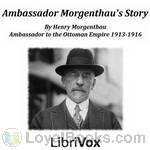 Ambassador Morgenthau's Story
Ambassador Morgenthau's Story
Ambassador Morgenthau’s memoirs of his years in the service of the United States in Constantinople, (today Istanbul), are an important primary historical resource for the study of the dissolution of the Ottoman Empire and the Armenian Genocide. During this genocide, approximately 1,500,000 Armenians living in Anatolia were murdered in an attempt to rid Turkey of its non-Turkish populations. Mr. Morgenthau left Turkey a frustrated man, having done all that he was able through diplomatic circles to halt the murders, to no avail... | |
By: Henry Ossian Flipper (1856-1940) | |
|---|---|
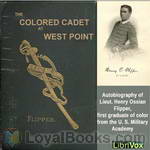 The Colored Cadet at West Point
The Colored Cadet at West Point
Henry Ossian Flipper--born into slavery in Thomasville, Georgia on March 21, 1856--did not learn to read and write until just before the end of the Civil War. Once the war had ended, Flipper attended several schools showing a great aptitude for knowledge. During his freshman year at Atlanta University he applied for admittance to the United States National Military Academy at West Point. He was appointed to the academy in 1873 along with a fellow African American, John W. Williams. Cadet Williams was later dismissed for academic deficiencies. | |
By: Henry Paul Mainwaring Jones (1896-1917) | |
|---|---|
 War Letters of a Public-School Boy
War Letters of a Public-School Boy
| |
By: Henry Pearson [Editor] Gratton | |
|---|---|
 As A Chinaman Saw Us Passages from his Letters to a Friend at Home
As A Chinaman Saw Us Passages from his Letters to a Friend at Home
| |
By: Henry Pepwell (-1540) | |
|---|---|
 The Cell of Self-Knowledge : seven early English mystical treatises printed by Henry Pepwell in 1521
The Cell of Self-Knowledge : seven early English mystical treatises printed by Henry Pepwell in 1521
| |
By: Henry Peterson (1818-1891) | |
|---|---|
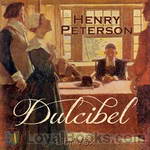 Dulcibel A Tale of Old Salem
Dulcibel A Tale of Old Salem
Dulcibel is a young, pretty and kind-hearted fictional character charged with Witchcraft during the infamous Salem Witch trials. During this time there is a group of "afflicted girls" who accuse Dulcibel and many others of Witchcraft, and during their trials show "undoubtable" proof that these people really are Witches. Will Master Raymond, Dulcibel's lover, be able to to secure Dulcibel's release from jail? Or will Dulcibel's fate be the gallows like so many other accused Witches of her time? | |
By: Henry Rider Haggard (1856-1925) | |
|---|---|
 Pearl Maiden
Pearl Maiden
This is the story of Miriam, an orphan Christian woman living in Rome in the first century. She falls in love with a Roman officer, but knows that her Jewish childhood playmate loves her too and will do anything in order to get her love in return. | |
 Cleopatra
Cleopatra
| |
 The Lady of Blossholme
The Lady of Blossholme
| |
 Swallow: a tale of the great trek
Swallow: a tale of the great trek
| |